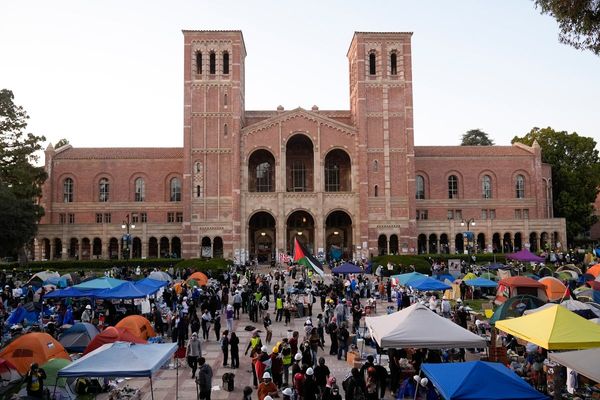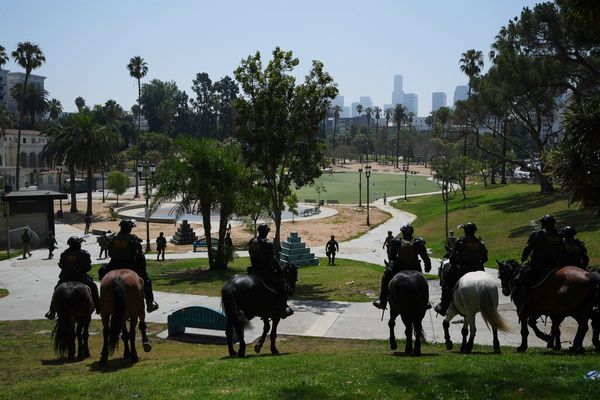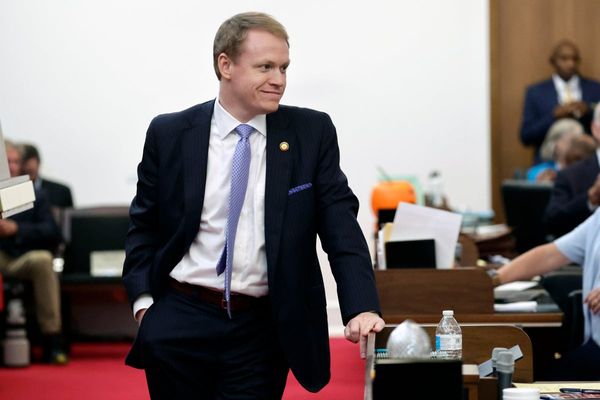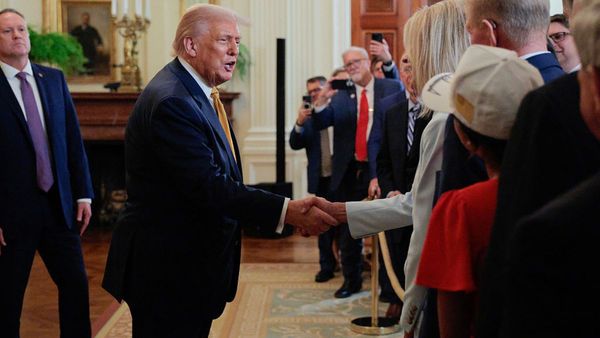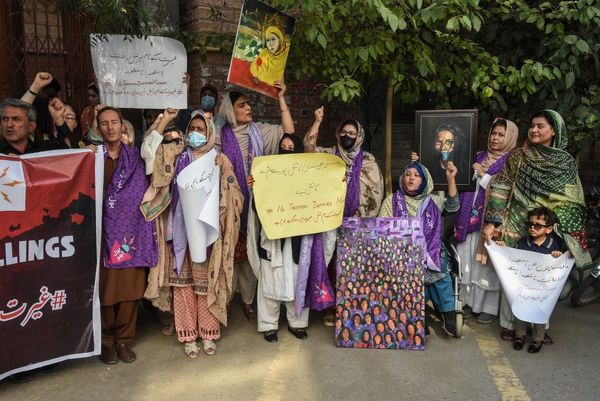
It’s the decades-long fight over uranium mining that pitted Indigenous owners against the resources industry.
Now it seems the war is over, with the Australian government moving to expand the Kakadu national park to protect the Jabiluka site from mining for ever.
The prime minister, Anthony Albanese, will announce the decision on Saturday, declaring “this beautiful part of Australia is home to some of the oldest rock art in the world”.
Jabiluka is also the site of one of the world’s biggest uranium deposits. Energy Resources Australia (ERA), which is majority-owned by Rio Tinto, has held the mining lease since 1991.
The mine is surrounded by Kakadu national park. Local traditional owners, the Mirrar people, have long wanted the land incorporated into the park, a step also advocated by the former federal environment minister and Midnight Oil frontman, Peter Garrett.
The granting of the original lease in 1991 was hugely controversial at the time. In the 1990s, the Mirrar people led a blockade of the mine site and applied persistent pressure to stop development.
In June this year, the Northern Territory government issued a two-year order to prevent mining and exploration at Jabiluka, pending a decision on whether to grant the leaseholder a 10-year extension.
In lodging its extension application for Jabiluka, ERA argued that an extension was the best way to protect the mine site’s cultural heritage.
ERA highlighted the long-term agreement it had reached with the Mirrar people which affords them a right of veto over future development. The company vowed to keep that in place if the lease was renewed.
But on Friday the NT government announced it would not renew ERA’s lease, after a process that included discussions with the federal government. The NT election is due to be held on 24 August.
“We have gone through a thorough process to ensure that all stakeholder views have been considered in this decision,” the NT mining minister, Mark Monaghan, said.
“The federal government advice, along with the wishes of the Mirarr people, were critical to this process and outcome.”
Albanese will promise to go a step further in protecting the site when he addresses the Labor party’s NSW state conference in Sydney on Saturday.
The prime minister will recall receiving a letter from Yvonne Margarula, the senior traditional owner of Mirrar country, that described the chance “to finally be free of the threat of further uranium mining at Kakadu”.
Albanese will note that archeologists in 2017 discovered the site was home to axes and sharpening tools dating back tens of thousands of years, further proof of “the extraordinary and enduring connection Aboriginal and Torres Strait Islander people have had with our land”.
The prime minister will cast his government’s decision to protect the site in terms of bold decisions made by his predecessors.
“In 1991, despite pressure even from within his own cabinet, Bob Hawke acted to stop uranium mining in Kakadu national park,” Albanese will say according to speech notes.
“In 2013, the Gillard government, acting on the express wishes of traditional owner Jeffrey Lee from the Djok clan, legislated to protect his people’s land by adding Koongarra to the national park.
“Today, I am proud to announce that our government will be working with the traditional owners to make Jabiluka part of Kakadu national park, once and for all.”
The mineral lease for the site is due to end on 11 August. Despite decades of uncertainty and contention, the site has never been mined.
Albanese will say the decision to incorporate the site into the national park “means there will never be mining at Jabiluka”.
“The Mirrar people have loved and cared for their land for more than 60,000 years,” he will say.
“Our government will work with them to keep it safe for all time.”

